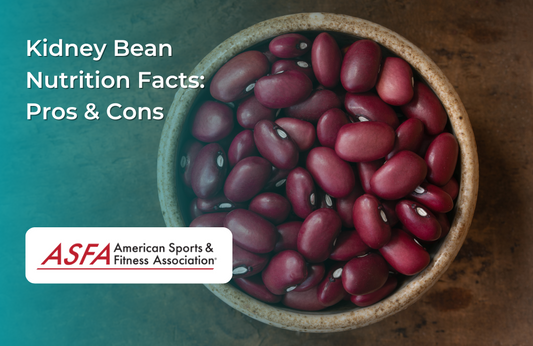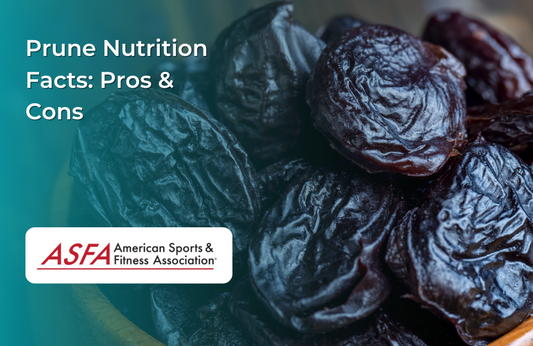Orange vegetables like carrots, sweet potatoes, and butternut squash are packed with essential nutrients. They boost immune function, improve vision, and support heart health. In this article, we’ll explore the benefits of orange vegetables and how to add them to your diet.
Key Takeaways
-
Orange vegetables like sweet potatoes, carrots, and butternut squash are nutrient-dense and can boost overall health with vitamins A, C, and potassium.
-
Incorporating sweet potatoes and carrots into your diet supports vision health, immune function, and heart health while offering versatility in delicious recipes.
-
Exploring a variety of orange vegetables, such as orange bell peppers and kabocha squash, can enhance flavor and provide diverse nutritional benefits.
Nutrient-Rich Powerhouses
Orange vegetables like sweet potatoes, carrots, and butternut squash are packed with vital vitamins and minerals that support a healthy diet. These vibrant vegetables are rich in vitamins A, C, and K, potassium, and fiber, making them a nutritional powerhouse. Incorporating a variety of orange vegetables into your meals can boost overall health by supplying key nutrients for various bodily functions.
Roasting orange vegetables with a small amount of oil can enhance the absorption of fat-soluble vitamins, while steaming helps preserve water-soluble vitamins. Including these vegetables in every meal can significantly increase your nutrient intake and improve overall health.
Beta-Carotene for Good Vision
Beta-carotene, found abundantly in red and orange vegetables, is vital for good vision and the prevention of age-related eye diseases. Carrots, in particular, are a significant source of beta-carotene and antioxidants such as lutein and zeaxanthin, which contribute to maintaining eye health by absorbing blue light and reducing oxidative damage.
Eating beta-carotene-rich foods like carrots regularly helps protect against night blindness and supports vision health. Higher levels of lutein and zeaxanthin, found in these vegetables, are linked to a lower risk of age-related macular degeneration, supporting good vision.
Vitamin C for Immune System Support
Vitamin C is essential for enhancing immune function and protecting the body against infections. Orange foods such as bell peppers are significant sources of vitamin C, providing a substantial boost to the immune system and aiding in tissue repair. Adding these vegetables to your diet helps maintain healthy cells and enhances overall health.
In addition to supporting the immune system, vitamin C also helps in reducing inflammation and promoting heart health. Incorporating a variety of orange vegetables into your meals ensures your body gets enough vitamin C to stay healthy and strong.
Potassium Content for Heart Health
Potassium is another essential nutrient found in abundance in orange vegetables. Higher potassium intake is linked to a lower risk of stroke and cardiovascular diseases, primarily due to its beneficial effects on blood pressure. Oranges, for example, are a valuable source of potassium, which helps relax blood vessels and maintain healthy blood pressure levels.
Consuming adequate fiber and potassium, both found in oranges, is associated with a reduced risk of developing heart disease. Including potassium-rich foods like oranges in your diet promotes heart health and helps reduce the risk of high blood pressure.
Sweet Potatoes: A Versatile Superfood
Sweet potatoes are celebrated as a superfood due to their high nutrient content and diverse health benefits. These root vegetables are not only delicious but also incredibly versatile, making them a staple in many healthy diets.
From providing an abundance of vitamins and minerals to supporting gut health and regulating blood sugar, sweet potatoes offer numerous health benefits. Adding sweet potatoes to your meals can considerably boost your nutrition and well-being.
Benefits of Sweet Potatoes
One medium sweet potato provides more than the daily requirement of vitamin A, which is beneficial for eye health and immune function. Sweet potatoes contain 400% of the recommended daily intake of Vitamin A, making them an excellent choice for maintaining good health.
Rich in vitamin B6, sweet potatoes support brain function by aiding serotonin synthesis, and their compounds can assist in regulating blood sugar levels. These root vegetables also promote gut health and improve brain function, making them a nutritious addition to any diet.
Delicious Recipes with Sweet Potatoes
Sweet potatoes are a versatile superfood that can be incorporated into a variety of tasty recipes. Classic Candied Sweet Potatoes and Sweet Potato Pie with Sweet Potato Crust are two delicious recipes that showcase the versatility and flavor of sweet potatoes.
Including these recipes in your meals lets you enjoy the health benefits and delicious taste of sweet potatoes. These dishes are not only nutritious but also easy to prepare, making them perfect for any meal.
Carrots: The Crunchy Health Booster
Carrots are a crunchy and nutritious addition to any diet, offering numerous health benefits. These orange vegetables are rich in carotenoids, plant-based phytonutrients responsible for their vibrant color. With a low-calorie content and high fiber, carrots support digestive health and help prevent constipation.
Adding carrots to your meals can boost your overall nutrition and well-being.
Benefits of Carrots
Carrots are rich in lutein and zeaxanthin, which are essential for reducing cataract risk and maintaining healthy vision. The provitamin A carotenoids found in carrots serve as precursors to vitamin A, crucial for optimal vision.
Regular consumption of carrots can stabilize blood sugar levels, making them a suitable food choice for individuals with diabetes. They also provide essential fiber that supports digestive health and helps lower cholesterol levels, contributing to heart health.
Tasty Carrot Recipes
Incorporating tasty recipes like Maple Balsamic Glazed Carrots and Asian-Style Carrot Noodles makes it easier to enjoy the health benefits of carrots. These recipes are not only delicious but also easy to prepare, making them perfect for any meal.
Maple Balsamic Glazed Carrots combine the flavors of maple syrup and balsamic vinegar to create a sweet and tangy dish. Exploring various carrot recipes can lead to discovering new ways to enjoy this nutritious vegetable in your meals.
Butternut Squash: The Winter Delight
Butternut squash is not only delicious but also a well-loved winter vegetable that is packed with nutrients. High in vitamins, minerals, and antioxidants, butternut squash supports immune function and heart health.
Including butternut squash in your winter meals can significantly enhance your overall health and well-being.
Nutritional Value of Butternut Squash
Before: Butternut squash is packed with essential nutrients, including potassium and Vitamin C, contributing to overall health. The potassium in butternut squash helps regulate blood pressure and supports heart health. The high fiber content in butternut squash supports digestion and can aid in immune function.
After: Butternut squash is packed with essential nutrients, including:
-
Potassium, which helps regulate blood pressure and supports heart health
-
Vitamin C, contributing to overall health
-
High fiber content, which supports digestion and can aid in immune function
Including this vegetable in your diet can enhance your nutritional intake and promote better health.
Cooking with Butternut Squash
Butternut squash can be roasted with olive oil and spices for a flavorful side dish. It can also be used in soups by blending it with coconut milk for a creamy texture.
Stuffed butternut squash halves with grains and vegetables make a nutritious vegetarian meal. Adding butternut squash to your meals enhances both flavor and nutritional value.
Other Orange Vegetables Worth Trying
Besides the more common orange vegetables like carrots and sweet potatoes, there are other orange vegetables worth exploring. These include orange bell peppers, kabocha squash, and orange cherry tomatoes, each offering unique flavors and nutritional benefits.
Adding these diets rich in fruits and vegetables to your diet offers a diverse range of nutrients and boosts overall health.
Orange Bell Peppers
Orange bell peppers are considered sweeter than green peppers and offer a variety of nutrients. They are less sweet and slightly tangier than red bell peppers, making them a versatile ingredient in many dishes.
Adding orange bell peppers to your meals enhances flavor while providing essential vitamins and minerals.
Kabocha Squash
Kabocha squash is a nutritious food that is rich in vitamins A and C. It also contains B vitamins, fiber, magnesium, potassium, and antioxidants. This winter squash prevents diabetes and cancer, boosts the immune system, treats inflammation, and promotes heart health.
Adding kabocha squash to your meals offers significant health benefits and boosts your overall nutrition.
Orange Cherry Tomatoes
Orange cherry tomatoes are rich in Vitamin A and lycopene, offering numerous health benefits. They have a mild, slightly sweet flavor and are low in acid, making them a delicious addition to any meal.
Adding orange cherry tomatoes to your diet enhances flavor and supplies essential nutrients.
How to Incorporate More Orange Vegetables into Your Diet
Incorporating more orange vegetables into your diet can enhance flavor and nutrition without being obvious. A diet rich in vitamin C may help in quicker recovery from infections and provide numerous other health benefits.
Shredded orange vegetables can be added to dishes like muffins and pasta sauces to boost flavor and nutrition without altering the taste.
Meal Planning with Orange Vegetables
Increased potassium from orange vegetables helps to counteract high sodium levels, promoting better blood pressure control. Carrots contain soluble fiber that aids in regulating blood sugar and insulin levels after meals.
Creating a colorful veggie box with a mix of orange and other colored vegetables encourages a diverse nutrient intake. Keeping pre-cut orange vegetables in the fridge allows for quick, healthy snack options and meal additions.
Cooking Techniques for Maximum Nutrients
Sweet potatoes can be prepared in various ways such as steaming, roasting, boiling, or microwaving, providing versatile cooking options. Roasting orange vegetables can preserve their flavors and nutrients, making them a versatile ingredient in various dishes.
Cooking carrots can enhance the absorption of beneficial antioxidants like beta-carotene. Using these cooking techniques helps maximize the nutritional value of orange vegetables.
Potential Risks and Considerations
While orange vegetables offer numerous health benefits, it’s essential to be aware of potential risks. High consumption of orange vegetables is associated with lowering cancer risk, but there are also studies suggesting it may increase the risk of colorectal cancer.
Additionally, high doses of beta-carotene supplements can increase the risk of lung cancer, particularly in smokers. Awareness of these risks aids in making informed dietary choices.
Allergies and Sensitivities
Certain individuals may experience allergic reactions to specific compounds found in orange vegetables, necessitating careful dietary management. Symptoms of these allergies can include itching, swelling, or gastrointestinal distress, which may affect the oral cavity or cause hives.
If you suspect an allergy to orange vegetables, consult a healthcare professional to identify and manage your symptoms. This way, you can continue to enjoy a varied diet while avoiding adverse effects.
Overconsumption of Beta-Carotene
Consuming excessive amounts of beta-carotene can lead to a condition called carotenemia, which causes the skin to take on a yellowish-orange hue. While carotenemia is generally asymptomatic and does not pose significant health risks, it can lead to cosmetic concerns due to skin discoloration.
Unlike vitamin A toxicity, which can produce acute symptoms like headache and nausea, high levels of beta-carotene primarily cause carotenemia without adverse effects on health. However, it is important to balance your intake and avoid excessive consumption of beta-carotene supplements, particularly for individuals who cannot convert it to vitamin A, such as those with hypothyroidism.
Summary
In summary, orange vegetables such as sweet potatoes, carrots, and butternut squash are nutrient-rich powerhouses that can greatly enhance your diet. They provide essential vitamins, minerals, and antioxidants that support good vision, immune function, and heart health. Including these vegetables in your meals can help you achieve a balanced and nutritious diet while enjoying delicious and versatile recipes.
By being mindful of potential allergies and the risks of overconsumption, you can safely incorporate more orange vegetables into your diet. Embrace the vibrant colors and diverse flavors of these vegetables to boost your overall health and well-being. So, the next time you’re at the grocery store, don’t forget to add a variety of orange vegetables to your cart and enjoy the numerous benefits they offer.
Frequently Asked Questions
What are the health benefits of eating orange vegetables?
Eating orange vegetables is a fantastic way to boost your health, as they are packed with vitamins A and C, potassium, and fiber that support vision, immune function, and heart health! Enjoy them regularly for a vibrant and nutritious diet.
Can I eat too many orange vegetables?
You can enjoy orange vegetables without worry, but moderation is key to avoid any cosmetic changes like a yellowish-orange skin tone. So, indulge in their health benefits while keeping an eye on your intake!
Are there any risks associated with eating orange vegetables?
Yes, there are some risks, such as potential allergic reactions and excessive beta-carotene from supplements, particularly for smokers. However, enjoying orange vegetables in moderation is safe and can be very beneficial to your health!
How can I incorporate more orange vegetables into my diet?
Incorporating more orange vegetables into your diet is easy and fun! Try adding shredded carrots or sweet potatoes to muffins, roasting them for side dishes, or mixing them into soups and salads for a vibrant boost.
What are some delicious recipes using orange vegetables?
You'll love the delightful flavors of Classic Candied Sweet Potatoes, Sweet Potato Pie with Sweet Potato Crust, Maple Balsamic Glazed Carrots, and Asian-Style Carrot Noodles. These dishes are not only nutritious but also simple to whip up!





